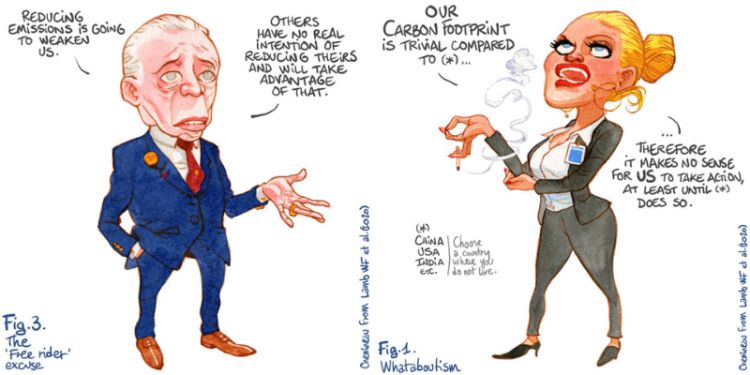“We’re doing everything we can” and other excuses not to act on climate change

Research uncovers over fifty-five commonly used justifications by high energy consumers not to change their lifestyles.
Dr Noel Cass (Institute for Transport) and Professor Milena Buchs (School of Earth and Environment) worked alongside Dr Karen Lucas (Human Geography at University of Manchester) on the published paper titled ‘How are high-carbon lifestyles justified? Exploring the discursive strategies of excess energy consumers in the United Kingdom’.
Their research included a literature review and conducting interviews and workshops with people from ‘high-energy-consumption households’ and other members of the public.
The conversations confirmed and uncovered new justifications that consumers give for their inaction against climate change.
In Dr Cass’ blog post on the topic, ‘the A-Z of excuses for not taking action on the climate’, he outlines what some of these are.
Discourses of inaction and strategies of entitlement
The first set of excuses they list is a type of excuse that has been documented before, named “discourses of inaction”.
Two examples of this are:
- Whataboutism:
“Our carbon footprint is trivial compared to […]. Therefore it makes no sense for us to take action, at least until […] does so.” *China, USA, Canada etc. – choose a country where you do not live!
- All talk, little action:
“We are world leaders in climate change. We have approved an ambitious target and have declared a climate emergency.”
The second set, described as “discursive strategies of entitlement”, was uncovered during this study.
Participants used humour and irony when giving reasons for not making substantial lifestyle changes to support positive climate action.
Some of these discourses include:
- Claiming that ‘we are doing everything we can’:
e.g. “I can’t really do much more reduction than what I’ve done in using energy … an A-rated machine, LED lights everywhere, all the normal things that everybody does”
- Describing wants or desires as needs:
e.g. an interviewee with six cars justified owning a sports car because “I need a proper grown-up car [laughter]. So, I needed a grown-up car that felt grown-up and still not grown-up”.
Dr Cass explains that high consumers believe themselves to be environmentalists because they’re following basic government advice about reducing energy consumption, such as switching to energy-saving lightbulbs.
This is a warning because, despite this, they’re still buying more cars, flying to more countries and buying unnecessary appliances.
How do attitudes differ?
There was a notable difference in wealthier participants’ attitudes to individual action and lifestyle change compared to less wealthy attendees.
Other research at the University of Leeds, such as Professor Lucie Middlemiss’ project ‘Understanding family and community vulnerabilities in transition to net zero’, shows that those with lower incomes and less access to services will be “disproportionately burdened during the transition to net zero,” as they may have to sacrifice more.
This echoes the sentiments of participants in Dr Cass’ study, as wealthier participants were able to follow government guidance while using more expensive technologies to get their desires met.
Influencing climate change policy
Across the University, research is underway which seeks to both understands the context surrounding climate change and action and to influence policy for change.
Participants of the workshops tended to shift blame onto governments or the economy. This highlights the need for improved government policies which both stress the importance of acting on climate change and give clear avenues for individuals and organisations to do so.
Understanding how consumers hold onto environmentally unfriendly habits by paying lip service to the dominant policy approaches to behaviour change suggests the need for new, potentially more effective policies.
The researchers urge the government to stop waiting for people to voluntarily change their behaviour, and make the green alternatives cheaper, more convenient, or simply available.
Read about the University of Leeds’ Climate Plan here.
Image
Illustrations: “Discourses of Climate Delay” © Léonard Chemineau.




